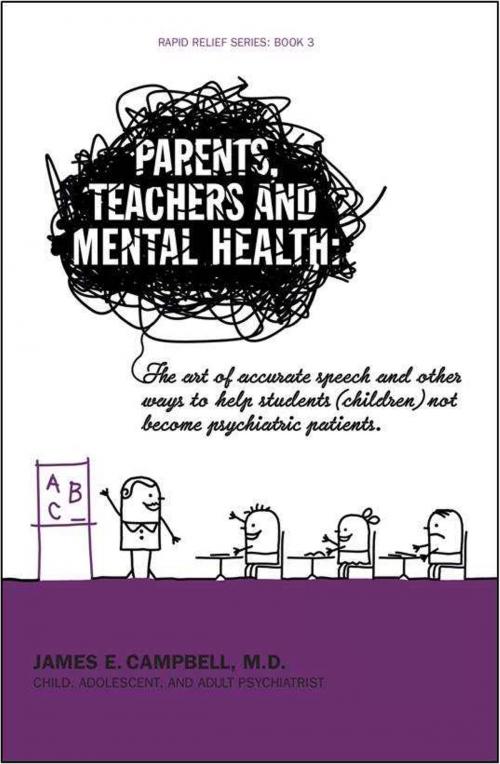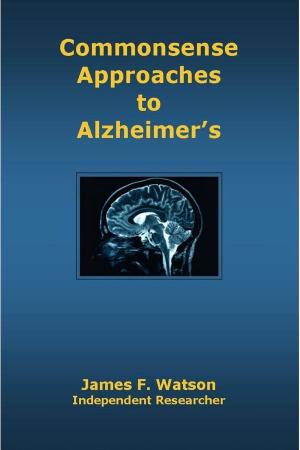Parents, Teachers and Mental Health
Nonfiction, Health & Well Being, Psychology, Child & Adolescent, Child Psychology, Family & Relationships| Author: | James E. Campbell, M.D. | ISBN: | 9780943247687 |
| Publisher: | UCS PRESS | Publication: | July 22, 2013 |
| Imprint: | Smashwords Edition | Language: | English |
| Author: | James E. Campbell, M.D. |
| ISBN: | 9780943247687 |
| Publisher: | UCS PRESS |
| Publication: | July 22, 2013 |
| Imprint: | Smashwords Edition |
| Language: | English |
Anyone who teaches others, including parents, can benefit from reading this book. Teachers play a pivotal roll in the education of children and adults. There are basic principles of living that could be taught in the classroom that would not take much time from teachers; in fact, I expect that because these concepts will reduce conflict in the school environment, it very well might give the teachers more time to teach. This book is not about what teachers should teach, but about how the way teachers teach can make major differences in their student's lives.
In my practice of psychiatry (child, adolescent, and adult) I find on a daily basis that I have to teach children and parents things they should have been learning from about the age of five. Because they are not getting that information they make mistakes in addressing the problems of life that they likely would not have made if they had a little more information.
It has always been my point of view that a lot of people's problems are related to not knowing how to get a different, or better, outcome from the one they are experiencing. I look first at what is missing in their approach to the problems they are having rather than seeing the problem as a psychiatric diagnosis. Unfortunately, to have insurance pay for the visits a doctor must frame the issue in a way the insurance entity will accept. In my experience, people, when given a few ideas or concepts related to the problems they are having, will then go forth and solve the problems.
This book is about the type of things that teachers can do in the process of their teaching to help individuals not create psychiatric problems for themselves. After all, if we don't create a problem, then we do not have to solve the problem; that translates into a conservation of energy on all fronts.
Anyone who teaches others, including parents, can benefit from reading this book. Teachers play a pivotal roll in the education of children and adults. There are basic principles of living that could be taught in the classroom that would not take much time from teachers; in fact, I expect that because these concepts will reduce conflict in the school environment, it very well might give the teachers more time to teach. This book is not about what teachers should teach, but about how the way teachers teach can make major differences in their student's lives.
In my practice of psychiatry (child, adolescent, and adult) I find on a daily basis that I have to teach children and parents things they should have been learning from about the age of five. Because they are not getting that information they make mistakes in addressing the problems of life that they likely would not have made if they had a little more information.
It has always been my point of view that a lot of people's problems are related to not knowing how to get a different, or better, outcome from the one they are experiencing. I look first at what is missing in their approach to the problems they are having rather than seeing the problem as a psychiatric diagnosis. Unfortunately, to have insurance pay for the visits a doctor must frame the issue in a way the insurance entity will accept. In my experience, people, when given a few ideas or concepts related to the problems they are having, will then go forth and solve the problems.
This book is about the type of things that teachers can do in the process of their teaching to help individuals not create psychiatric problems for themselves. After all, if we don't create a problem, then we do not have to solve the problem; that translates into a conservation of energy on all fronts.















